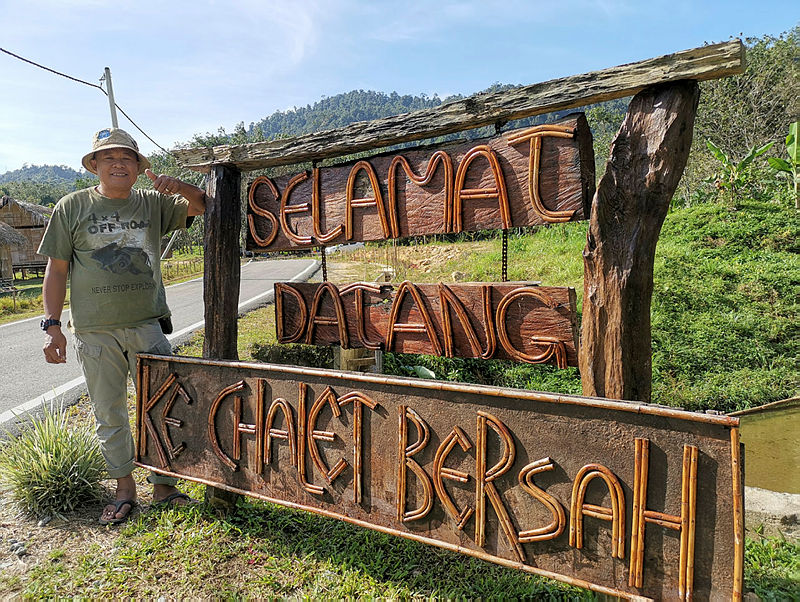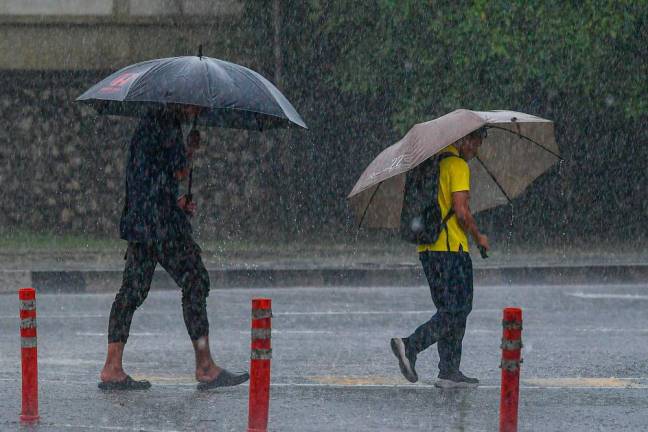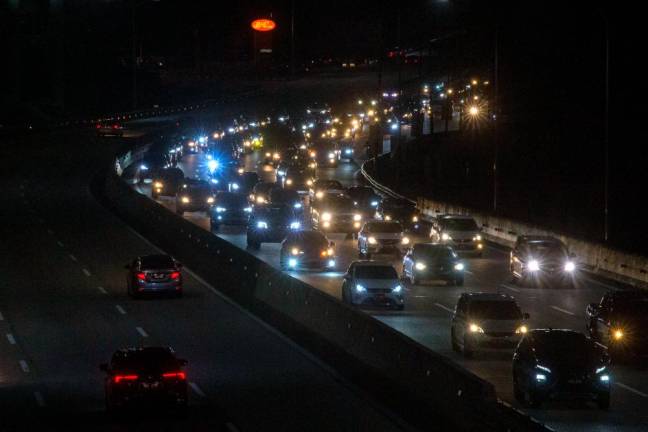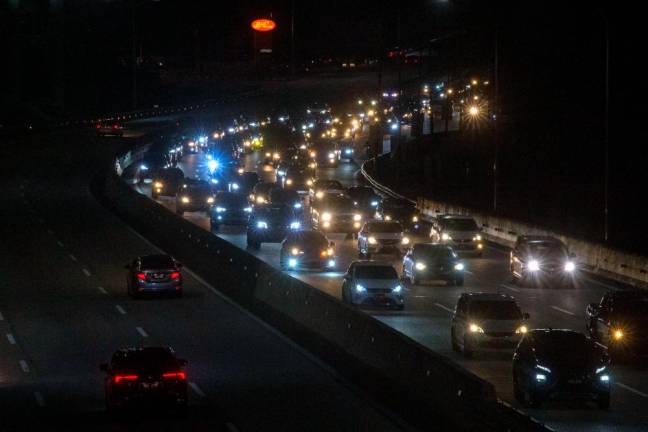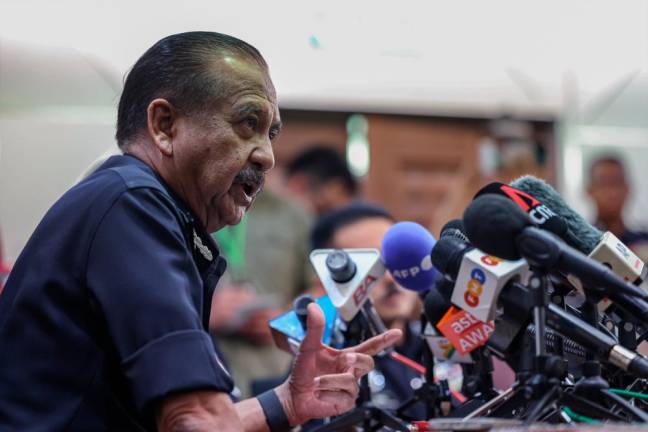SITUATED on elevated terrain in the Titiwangsa mountain range and surrounded by luscious rainforests, Pos Kuala Mu has all the trappings of a fascinating ecotourism destination.
It is most fortunate that the local community, comprising the Orang Asli’s Temiar ethnic group, has not let the area’s tourism value to go to waste.
Availing themselves of the resources around them, a group of enterprising people from the community has built chalets on three sites to lure visitors.
Called Bersah Chalet, Dusun Chalet and Kampung Gapeh Campsite, all three started operating in 2017 and have succeeded in attracting large crowds during the weekends and school holidays.
Pos Kuala Mu is located in the interior of the Piah Forest Reserve, about an hour’s drive from the town of Sungai Siput.
Located there are the Orang Asli villages of Kampung Bersah, Kampung Toh, Kampung Gapeh and Kampung Kuala Mu, with a population of about 900.
Boost the local economy
The chalets in Pos Kuala Mu may be bereft of luxury features and facilities but they are unique as they were built entirely out of forest resources such as bamboo and ‘bertam’ (a plant in the palm family that grows luxuriously in the forest), both of which are closely linked to the identity of the Temiar people.
Even more impressive is the fact that the chalets were all developed by the local community.
According to Kampung Bersah headman Hadu Long, 61, who oversees the management of the three chalet ventures, a total of 100 people aged between 19 and 45 were involved in the construction of the chalet units.
“In the past, they earned an income from farming or doing other kampung-related work. But now they are in a different field and learning something new,“ he told Bernama, recently.
Not only are they earning an income by jointly operating the chalets, the other villagers are also enjoying the spillover effects as they are able to generate an extra income by selling farm produce such as tapioca, sweet potatoes and vegetables and handicrafts to the visitors who come here, he said.
Pos Kuala Mu and Pos Yum, also an Orang Asli village located in Sungai Siput, were in the itinerary of an ecotourism programme organised by the Department of Orang Asli Development (Jakoa) for the Malaysian Senators Council from Jan 11 to 13.
New facilities
Pos Kuala Mu’s biggest asset is the enchanting beauty of mother nature it is amply endowed with.
To ensure a more “immersive” and value-added ecotourism experience for their visitors, the chalet operators intend to offer more facilities and activities, said Hadu.
Among the facilities being planned are food stalls as well as stalls selling herbs and ‘ulam’ (vegetables or herbs that are eaten raw). Plans are also in the offing to build a walking track and offer bicycles for rent and motocross racing.
“We are also hoping that the government will grant us the Orang Asli reserve land in the forests surrounding us. By giving us the land, we can produce various forest-based products... ecotourism is linked closely with the forest,“ he added.
He also hoped that with the income generated by their ecotourism activities, Pos Kuala Mu would emerge as the first Orang Asli settlement in the Kuala Kangsar district to be lifted out of the hardcore poor category, with each family expected to earn at least RM500 a month by 2025.
Development of ecotourism
The Orang Asli representative in the Dewan Negara, Senator Datuk Isa Ab Hamid, meanwhile said he would continue to focus on efforts to develop the ecotourism value of Orang Asli settlements, particularly those located in Sungai Siput.
However, in order for them to develop their ecotourism ventures into an industry that is resilient enough to withstand challenges, it is vital for them, especially the younger generation, to get a sound education, he said.
Currently, their ecotourism activities only attract domestic tourists but Isa reckoned that they have the potential to lure international tourists as well.
“It’s important that they (Orang Asli) learn to speak English so that they can interact with foreign tourists. The chalet operators should also receive training on how to serve their guests, how to prepare the rooms, etc,“ he said.
Isa also urged the Orang Asli to think of adding more value and enhancing their guests’ ecotourism experience by introducing them to the local food and handicrafts, and offering them services like bicycle, all-terrain vehicle or motorcycle rental.
“In view of the never-ending stream of local visitors who pour into Pos Kuala Mu during the weekends, the people there should diversify their source of income,“ he added.
Mapping of handicraft products
Isa also said that in order to identify the handicrafts of the various Orang Asli communities in Perak, the Perak branch of the Malaysian Handicraft Development Corporation and Jakoa would make a map denoting the place of origin of each handicraft and the ethnic group it belonged to.
“We plan to organise a handicraft workshop in Pos Kuala Mu in the near future to view the handicrafts of each ethnic group and also the resources available in their area.
“Their craftsmen need to be trained further to enable them to produce high-quality crafts that can be marketed in places like Pos Kuala Mu which attract visitors,“ he said.
He said the Orang Asli should realise that for a business to remain dynamic and competitive, the quality of their service or product has to be good as well.
Besides Pos Kuala Mu, other Orang Asli settlements that are currently developing ecotourism ventures are Kampung Redip in Gua Musang, Kelantan and Temuan Abo in Chembung, Rembau, Negri Sembilan.
Lubuk Muman at Pos Sinderut in Kuala Lipis, Pahang, is also on the verge of developing its ecotourism business, said Isa.
“Many other Orang Asli villages have started ecotourism projects on a small scale after seeing the success of Pos Kuala Mu,“ he added. — Bernama



